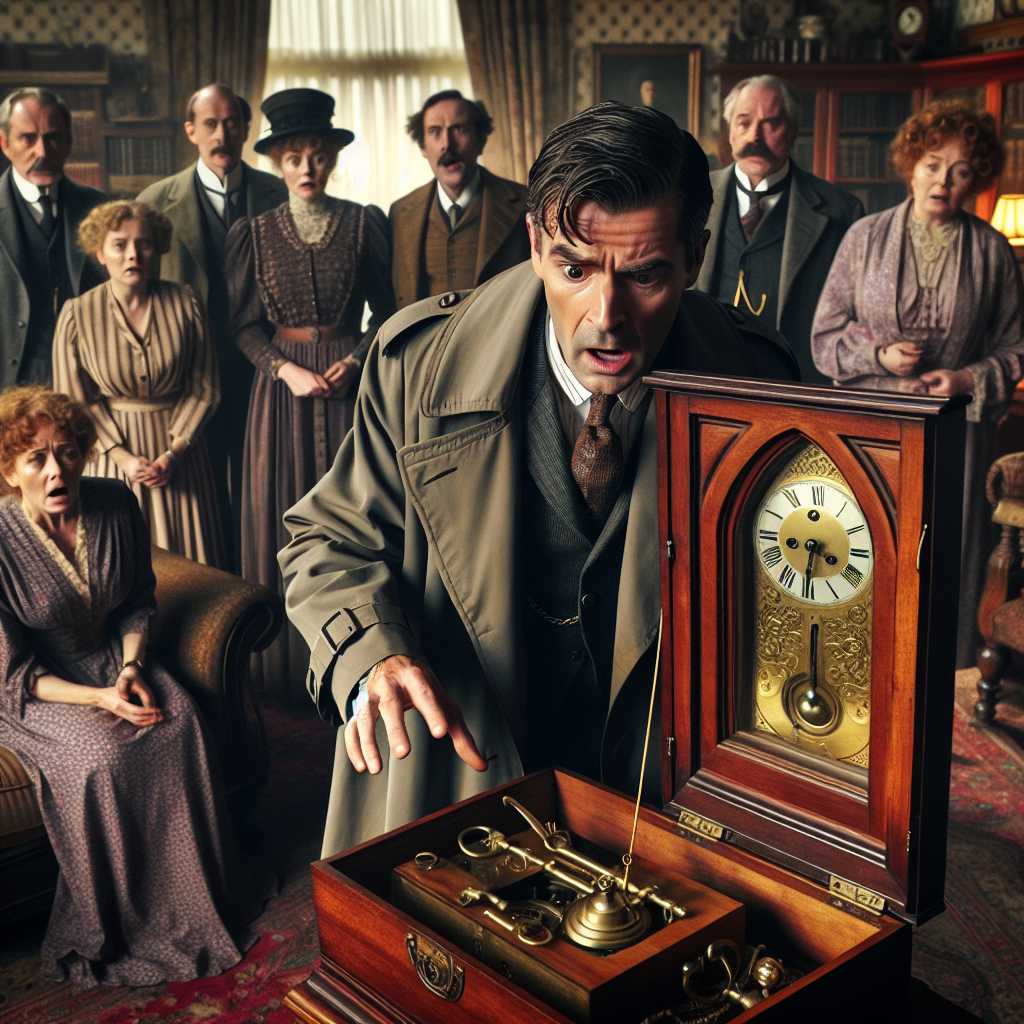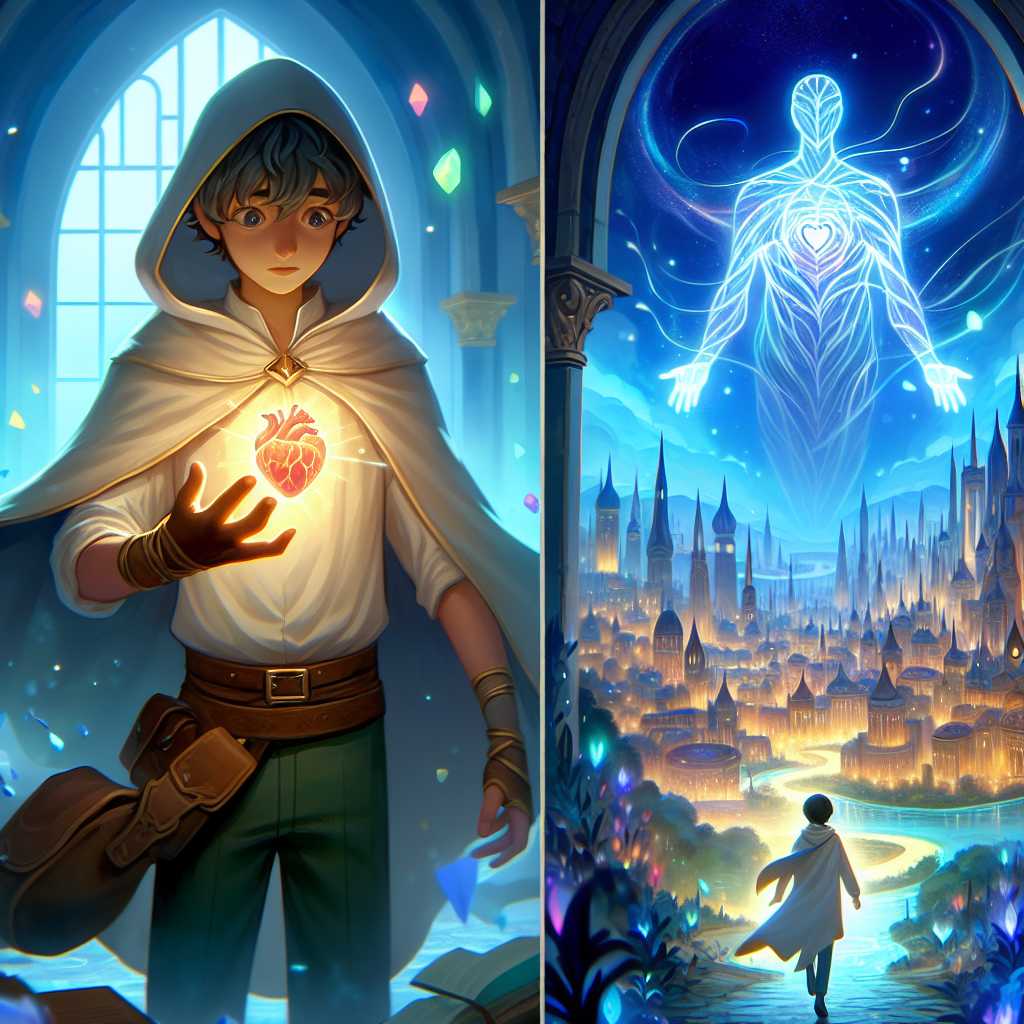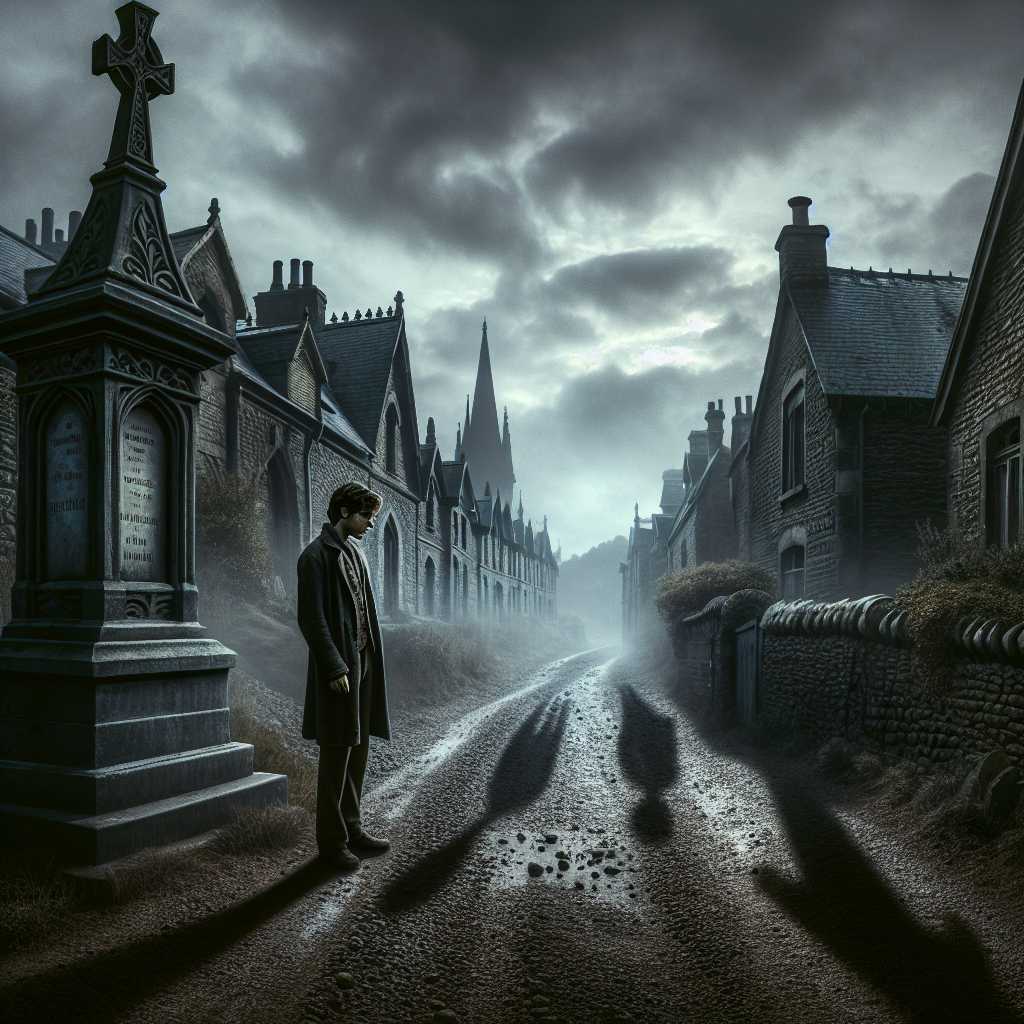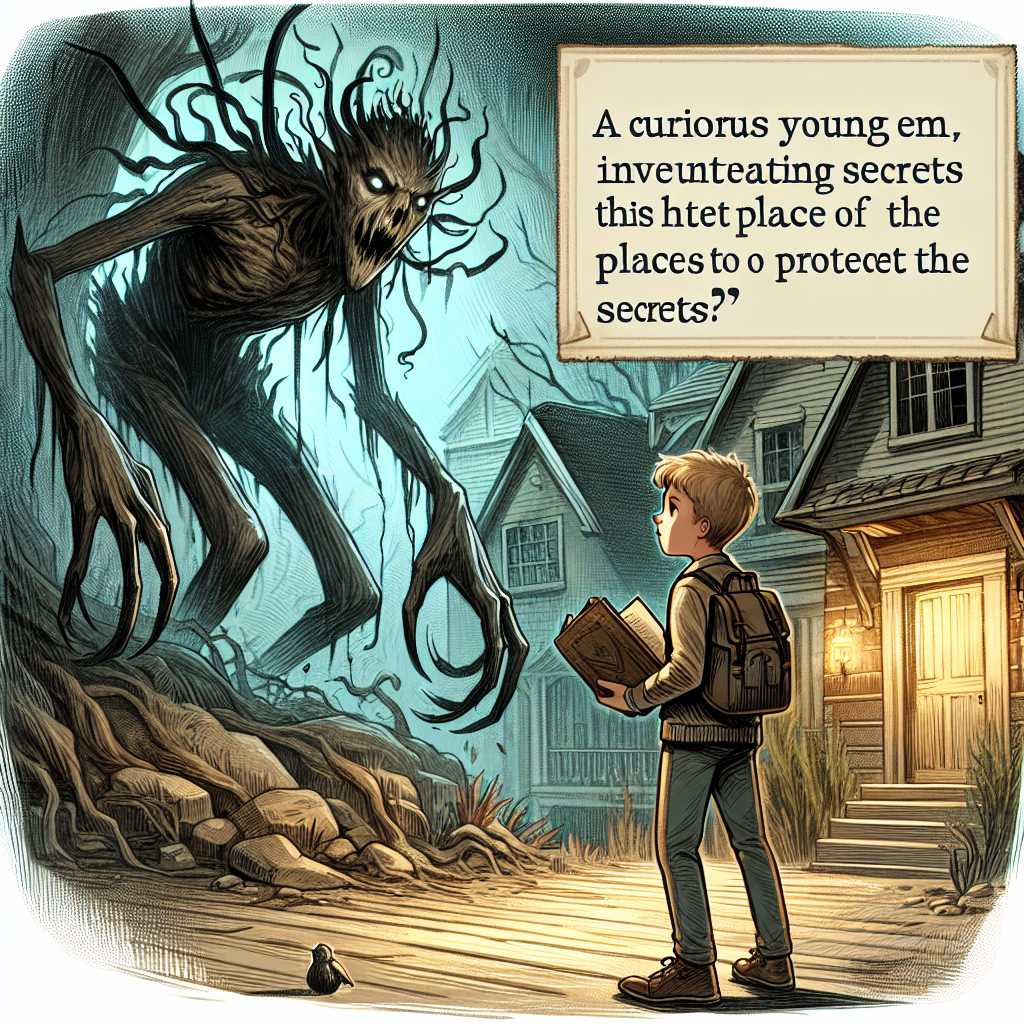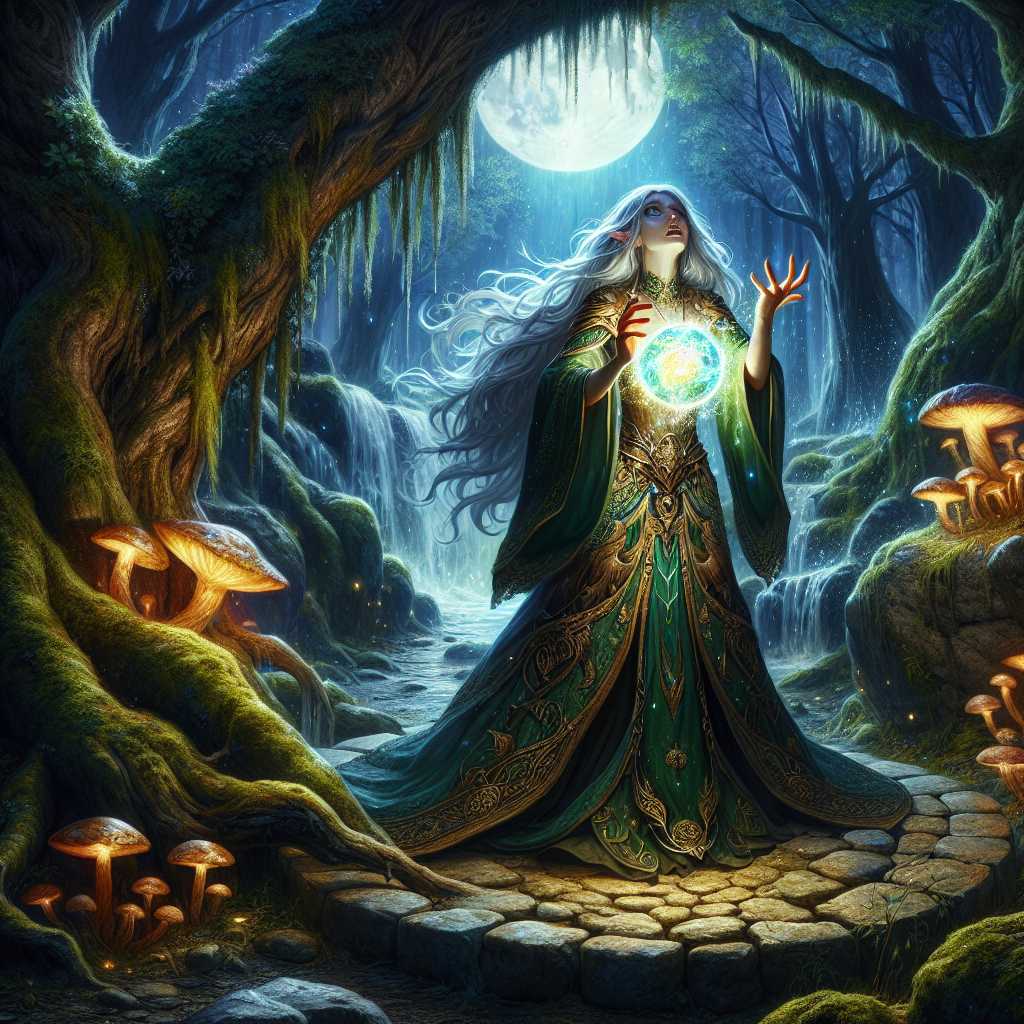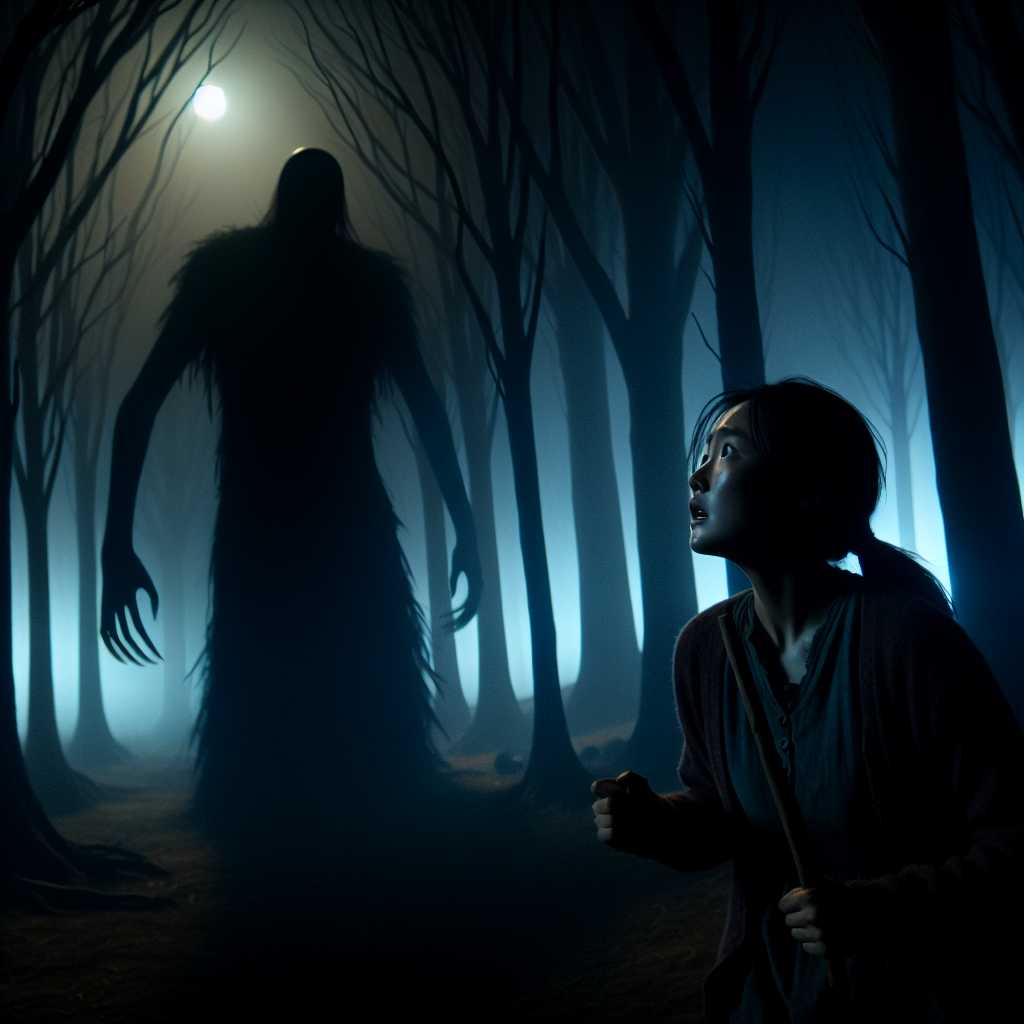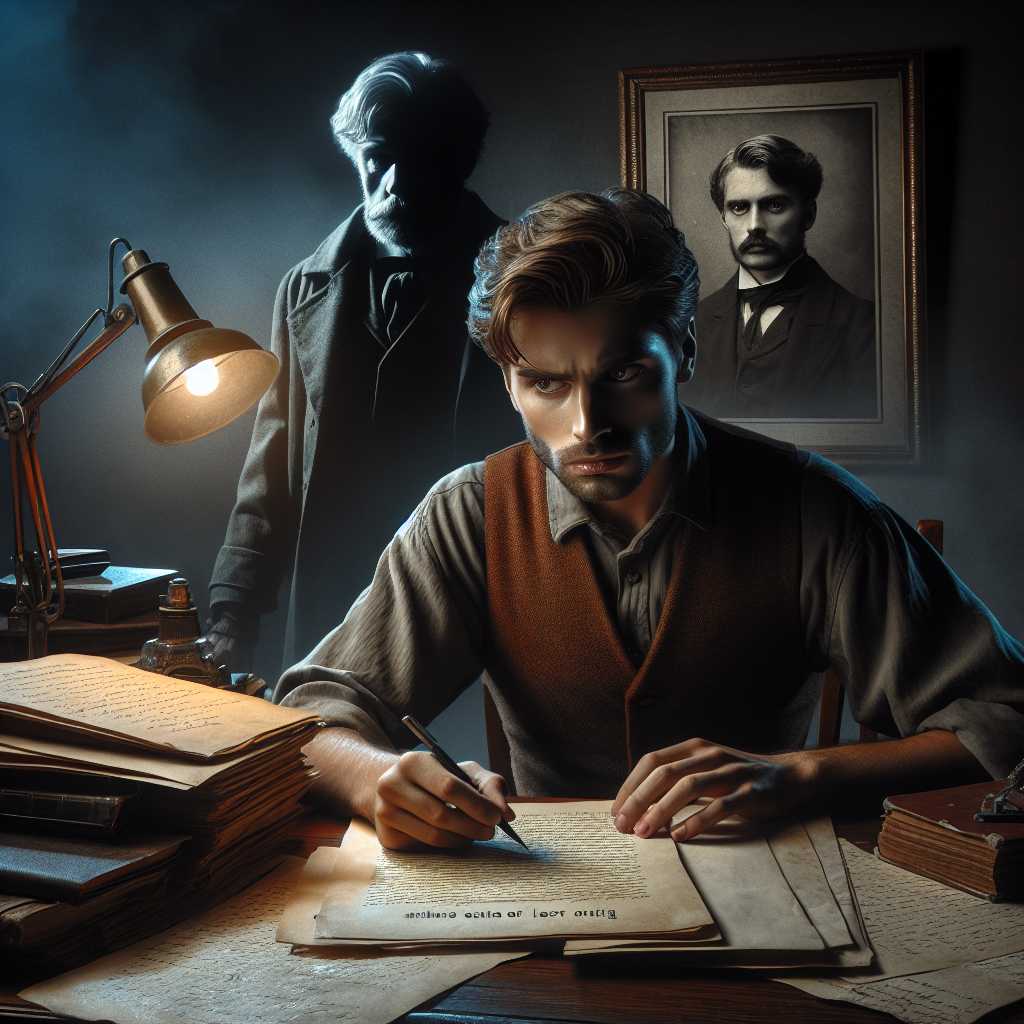
In the heart of the city, where the tall buildings reached for the clouds and the streets hummed with the symphony of urban life, there was a small, nearly forgotten alley where time seemed to stand still. At the end of this alley stood an antiquated bookshop with creaky wooden floorboards and walls lined with shelves that bore the weight of countless stories. The place was called Analogue Tales, and it was here that our drama begins.
The shop was tended by an elderly man named Elijah who wore his years like a heavy cloak woven with threads of silver and eyes that had seen more of life than most would dare to. One would often find him lost between the pages of a worn leather-bound volume, escaping to a realm where his age held no power over him. Each day was much the same, a quiet testament to the rhythm of a life that had settled like dust on old books.
One particularly overcast afternoon, as the dreary sky threatened rain, the solitude of the bookshop was interrupted by the sudden entrance of a young woman. Her presence seemed to fracture the silence like a stone through glass. Her name was Lila, and she possessed a beauty found not in symmetry, but in the storm of emotions that danced upon her expressive features.
"Mr. Elijah," she exclaimed in a voice trembling with desperation, "I need your help."
Elijah peered at her from behind his glasses, a lens to the sagacity of his years.
"My dear, I am no wizard who can grant wishes, nor a sage who can unravel the mysteries of fate. I am but a keeper of stories."
Yet, as Lila's strong-willed gaze met his own, Elijah felt a pull, a tug on the strings of a heart he thought had long ago turned to parchment. She was the granddaughter of his old companion, Frederick, whose memory lingered amidst the shop like the residual scent of tobacco and musky cologne. She came bearing the weight of a legacy, a manuscript left by her grandfather, words meant for the world that had never seen the light beyond pen and paper.
"It was his last wish, to have this published. You knew him, you know his work. It has to be you, Mr. Elijah."
Elijah's eyes widened with the understanding of the task at hand. Frederick's work had been brilliant but fraught with the sort of truth that a fickle society would often rather ignore. The pages held a mirror to a world mired in struggle and whispered of hope amidst the cacophony of despair. It was a story that could kindle soul fires, and Elijah knew that carrying out Frederick's last wish would be far more than a simple act of loyalty. It would be an upheaval.
The manuscript, entitled "The Echoes of Lost Voices," unraveled a tale that spoke of Elijah and Frederick's shared past, of activism, and of great love lost. It was a narrative that stirred up old feelings, rekindling memories Elijah had long confined to the shadows of his heart. The drama unfolded through the eyes of the protagonist, Thomas, who, much like Elijah and Frederick in their youth, fought against the tide of societal injustices, powering through the heavy resistance of a world reluctant to change.
The story's quintessence lay in the riveting dialogue, passion, and conviction. Thomas's love interest, Marianne, remained a thorn in his side, pushing and challenging him, her bold inked lines drawing out a mixture of passion and indignation from the depths of his being.
"You can't just wish for a better world, Thomas. You have to be willing to bleed for it," Marianne had told him with a fervor that could ignite revolutions.
As Elijah read, hands shaking with the power of each word, he wondered if he too still held enough fire to see the endeavor through.
Just as he turned another page, the bell above the bookshop door chimed once more, heralding the entrance of a stern-looking man in a sharp suit. He introduced himself as Julian, a representative for those invested in keeping Frederick's words from reaching the masses. He offered Elijah a tidy sum in exchange for the manuscript, a simple transaction that would ensure the story never saw the light of day.
"Think of it as... preserving the status quo," Julian proposed, his smile a razor's edge beneath polished charm.
Elijah's hand hovered over the manuscript, feeling the weight of history, of memories, of a promise to an old friend. He thought of Lila, her imploring eyes, and of Frederick, whose voice seemed to echo through the silence of the shop.
The old man straightened his back, a defiance blooming within him that he had not felt in years. His voice, when it came, was unwavering, cutting through Julian's façade like a blade.
"This is not a decision born of currency, but of conviction. The answer is no. 'The Echoes of Lost Voices' will be heard."
Julian left with a snarl, a veiled threat hanging in the air, but Elijah paid it no heed. With newfound resolve, he set out to fulfill Frederick's last wish. The days that followed were a blizzard of activity. Elijah contacted publishers, rallied old friends from the movement, and used every ounce of his being to ensure the manuscript found its rightful place in the public eye.
The night before the book's release, Lila found Elijah in the shop, surrounded by stacks of the newly printed volumes, his face alight with the vigor of purpose.
"You did it, Mr. Elijah." Lila's voice was soft, grateful.
"No, my dear," he corrected her gently, a twinkle in his eye, "We did it. Together."
The book was a catalyst, just as Thomas and Marianne's fiery discussions had hoped to be. It sparked debates, fueled movements, and whispered to silent hearts that perhaps change was not just possible, but within reach. As for Elijah, he found that even in the winter of life, spring could blossom anew.
And so, in the tiny bookshop at the end of the alley, the story did not end but began again, with the turn of every page, with the whispers of old friends, and the enduring belief that words could indeed remake the world.



